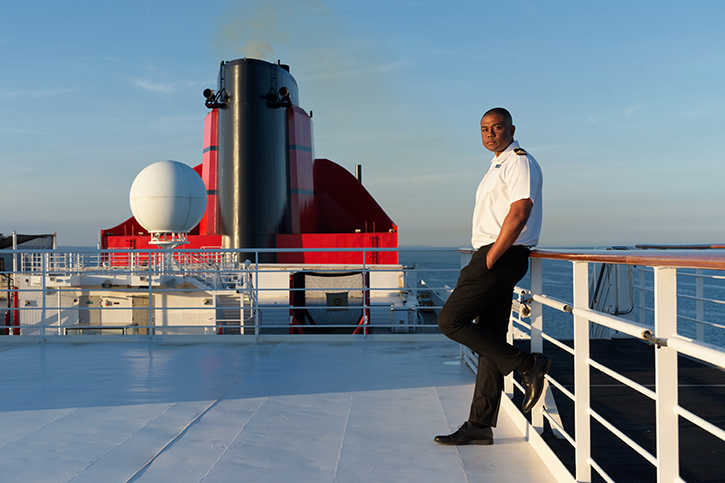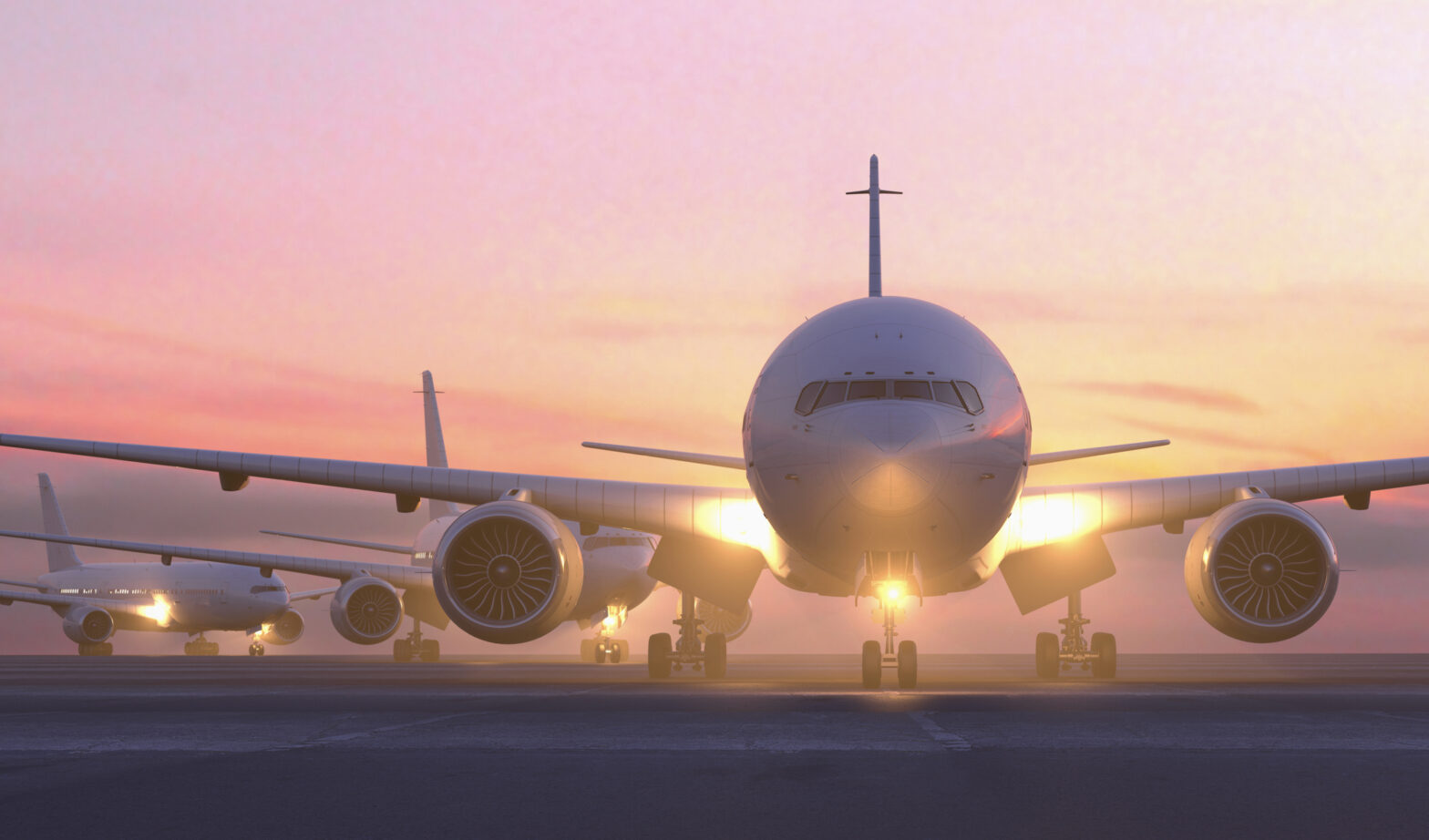Born and raised in Grenada, 32-year-old Kinnard Blache is the first Grenadian cruise ship navigator. If you’ve ever taken a cruise, you may have noticed many Caribbean nationals working on board the ship, in the hotel department and other areas.
However, it is extremely rare to see a ship navigator from the Caribbean, let alone one from the island of Grenada. The island’s seafarers typically consist of fishermen. Which is why Kinnard’s family and friends were so shocked when he made the switch to a popular cruise line in 2016, after eight years of working on oil tankers.
“I am very proud to have gotten to this point in my professional career,” he said. “Everyone in my family was extremely excited and at a loss for words, since this is by far a rare accomplishment for someone from our island.”
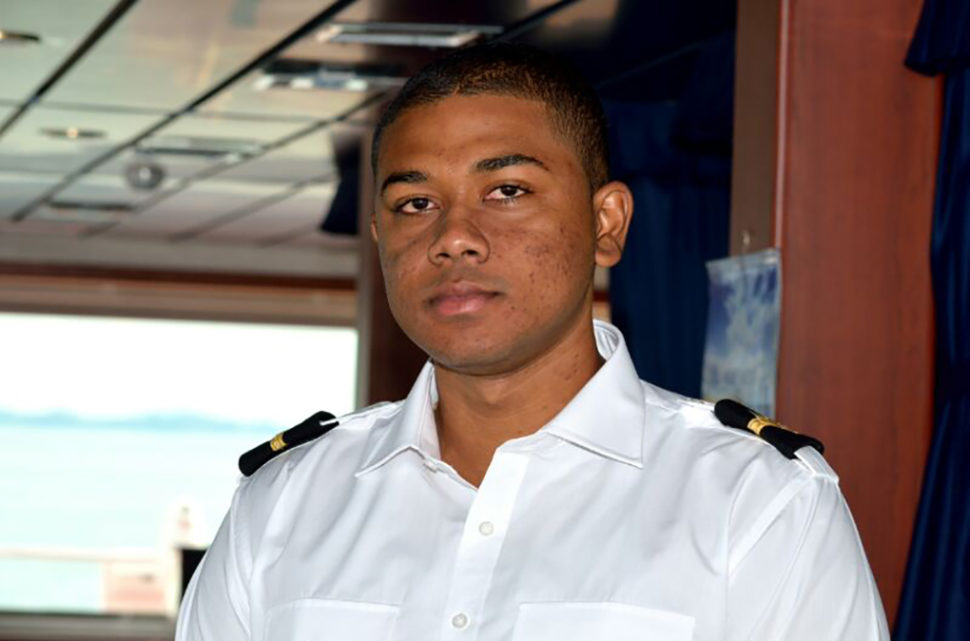
What Kinnard enjoys most about navigating is being able to maneuver such large vessels. He is proud to have docked ships over 1,100 feet in length. Kinnard also thoroughly enjoys celestial navigation.
“Despite having all forms of modern navigation equipment on board, we are still required to learn all the constellations and planets, and be able to use them to determine a ship’s position.”
One of the greatest aspects of his job, however, is being able to see the world. To date, Kinnard has seen every continent except Antarctica, and more countries than we can count. He has circumnavigated Australia and New Zealand, sailed up the rivers of South America, navigated through ice in Northeastern China, and through the fjords of Norway and New Zealand, where he watched glistening waterfalls cascading down majestic mountains.
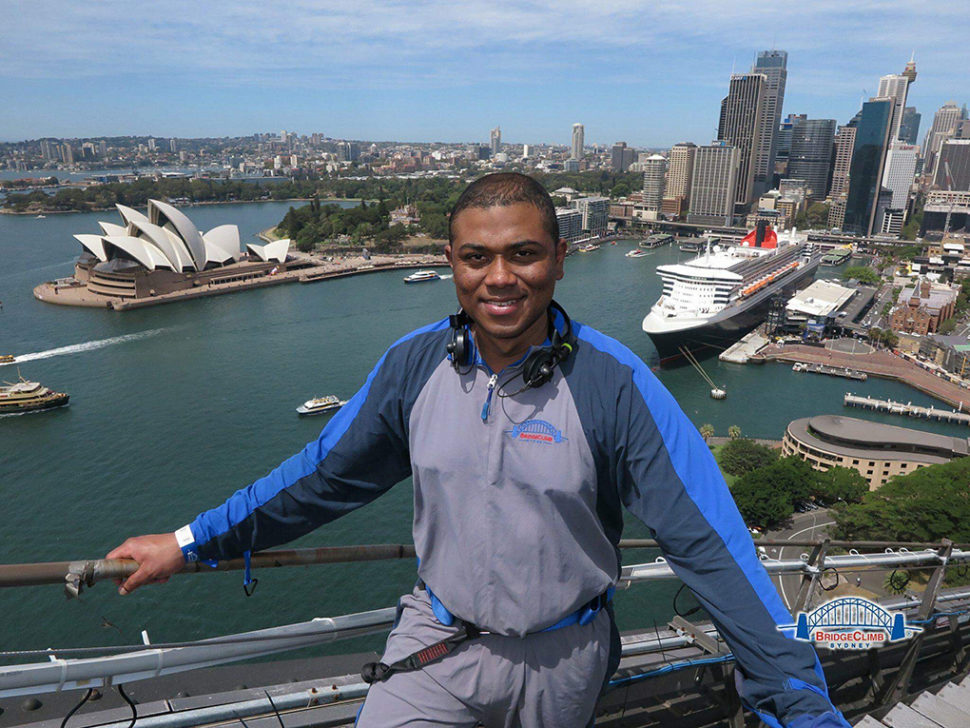
Naturally, his course has not been without its storms, both literal and figurative. On his very first ship back in 2008, Kinnard had to navigate through Hurricanes Ike and Hannah at age 19.
“This was an oil tanker that was taking fuel from St. Croix to the East Coast of the USA, from Jacksonville, FL up to New York. As compared to cruise ships that tend to avoid adverse weather completely, on an oil tanker, we basically have to avoid getting close enough that we feel too much of its effects, but also not so far away that we run out of our own fuel and potentially put the ship in serious danger.”
“Oil tankers do not have stabilizers (fin-like devices that extend underwater and move to counter the side to side rolling movement of the ship). So there I was, seeing waves of over 12 feet coming onto my ship. Luckily, we made it through, and I didn’t feel the effects of sea sickness too much. It was then that I knew I was meant for this profession.”
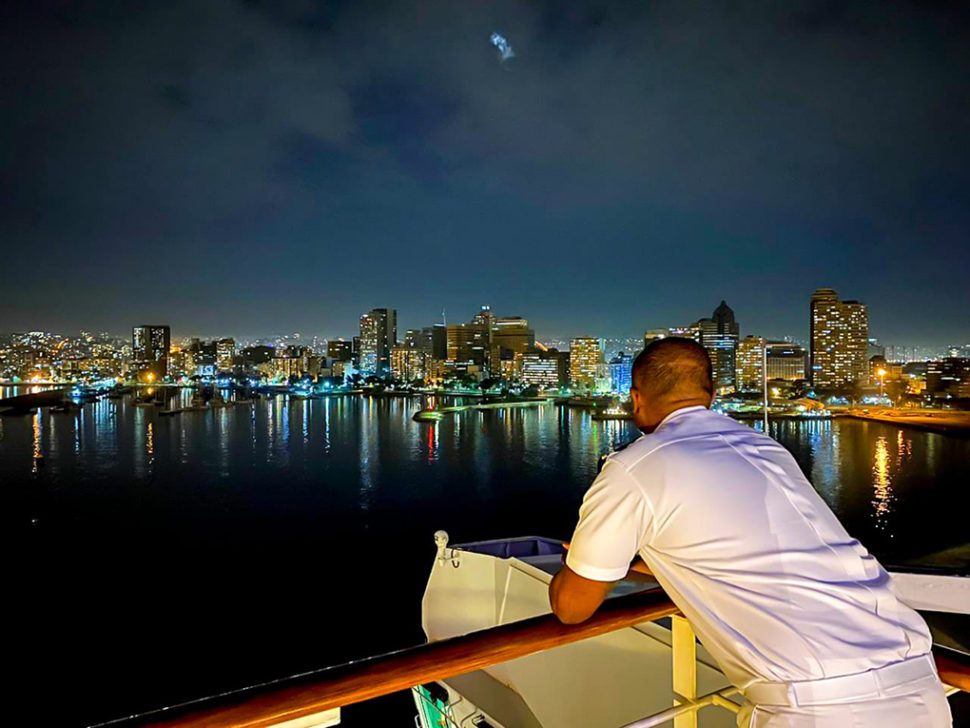
This same ship was also the first place Kinnard would be faced with racism. Coming from a majority Black nation, he had never before experienced being treated differently due to the color of his skin. After his first voyage, Kinnard was excited to join his shipmates in going ashore. But his captain at the time denied him, having false notions regarding his reasons for wanting to do so.
“He told another shipmate that I was only interested in going ashore because I wanted to ‘run away into America.’ I spent six months in total on that ship, my first three months with that captain. So for my first three months I couldn’t leave the ship at all. After that captain went home, the next one that came on had his mind poisoned by the previous one, but was still a bit more lenient. So he allowed me to go ashore but quietly told the other guys, ‘Don’t let him out of your sight. Wherever he goes, you go.'”
Kinnard also found himself subjected to ‘random’ drug searches many times in U.S. ports. Sometimes they would assign a Black officer to search him, in an attempt to lessen the blow. It came to the point that when they’d come to search, Kinnard would point out parts of his cabin they forgot to check.
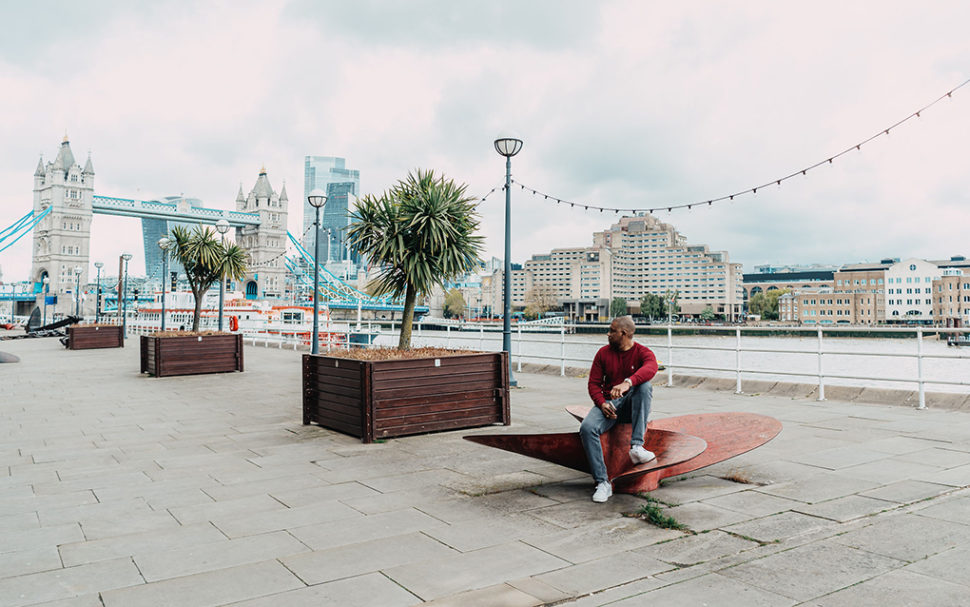
In other appalling attempts to break his spirit, the ship always conveniently ran out of winter gear as soon as Kinnard requested some. As a cadet, 99% of his work was outside on the deck, and he was forced to work six-hour night shifts in the freezing cold without proper gear.
“If you think winter is cold, winter at sea is much worse, mainly due to the wind factor. I had to use about three layers of my own clothes under my overalls to keep warm. Luckily, the other guys on deck with me (Filipinos) were decent humans, so they pointed out some areas of the ship where I could go to keep warm. Now I think I’m immune to the cold.”
Unfortunately, experiences like these have been the norm for Kinnard and other Black people working on ships. Prior to him and his classmates boarding their first ships, he recalls one of his lecturers from Jamaica keeping them back in class one afternoon and telling them to prepare themselves for racism they were sure to face.
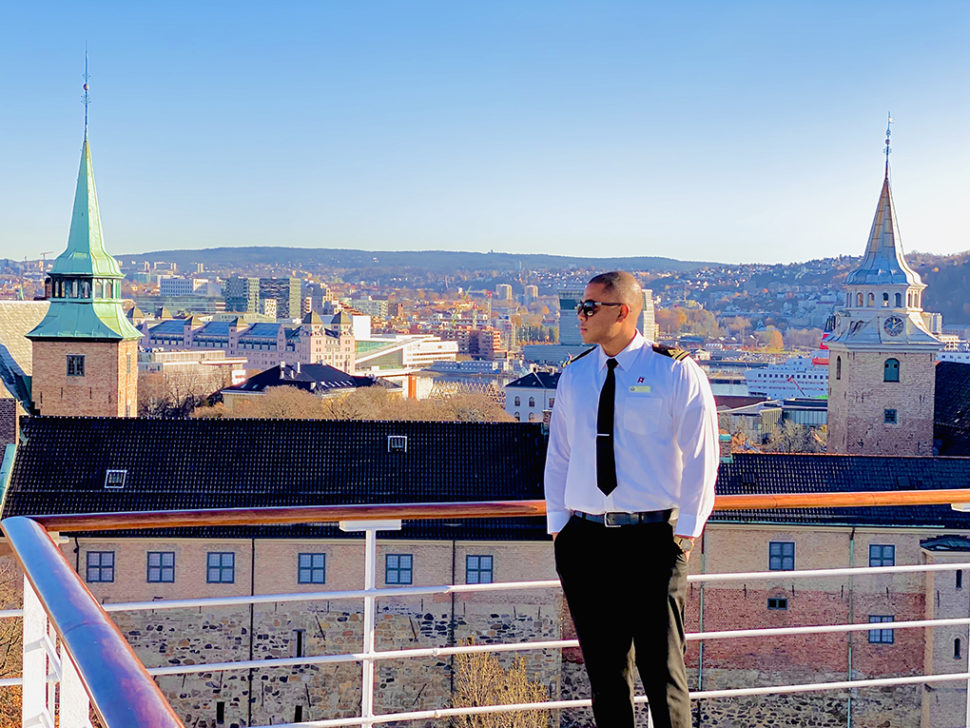
“He told us, ‘You all will go out to sea and they will not like you just because of your color. If you want to make it in this profession, you just have to deal with it. Nobody will listen to your complaints, and you’re going to be away from your families for up to six months, so you’ll have to just deal with it.’ And after hearing the stories from previous school friends who had returned from sea, that’s what we all did; we just dealt with it.”
Despite the injustices he faced, Kinnard persevered, determined not to let a small group break his spirit. He says his experiences have shaped him into the man he is today. They’ve made him a stronger individual, one who can face any situation and overcome it.
Now that he works aboard cruise ships, the atmosphere is different. People are more open-minded and things are more fair. To other Black people who may be considering a similar line of work, Kinnard says, “Go for it! We need more color at sea!”
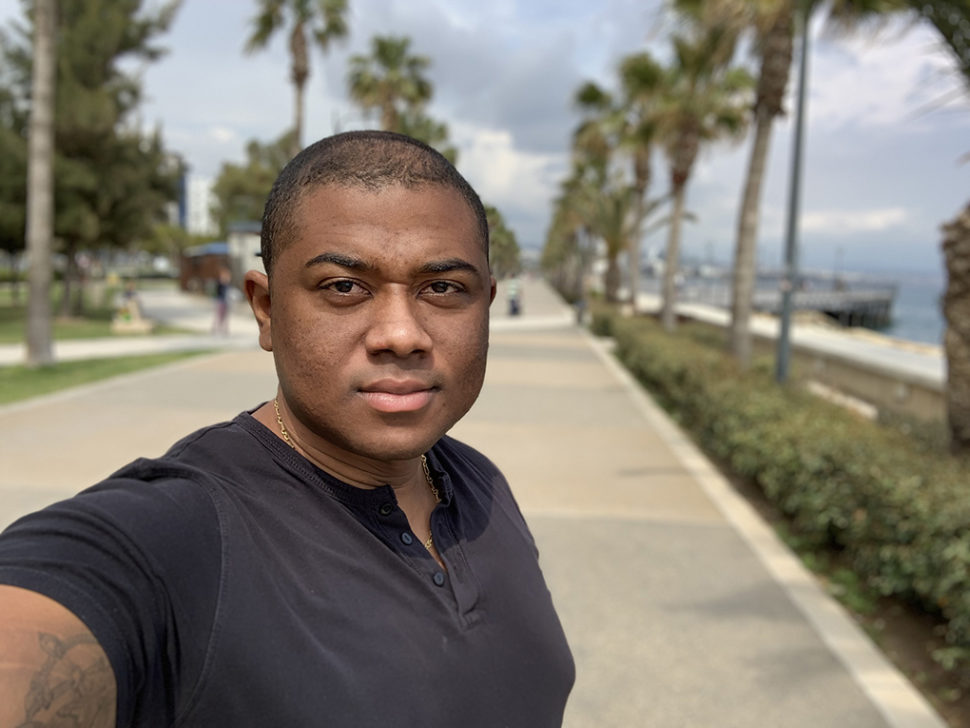
“That’s just part of the life at sea. The trials and the ups and downs are all part of the bigger picture of life. No matter how difficult things are, you can always find solace in looking out into the sea. All of your problems just disappear. No better comfort comes from being able to sit and open your mind to the calm and the elements. Why? Because life is simple, just add water!”
Kinnard has dreams of being an ice navigator, and would like to work on board exploration vessels going to the Arctic and Antarctic. Next year, he is also planning to volunteer with Mercy Ships, a hospital ship sailing from one African country to the next, bringing hope and healing. All the workers on board— the doctors, nurses, navigators, etc.— are volunteers.
“I want to do some service and give back. As Muhammad Ali said, ‘Service to others is the rent we pay for our room here on earth.'”
You can follow Kinnard at @thenauticalwanderer.
Related: Black Seafarers And Pirates That Conquered The Seas While Making History
